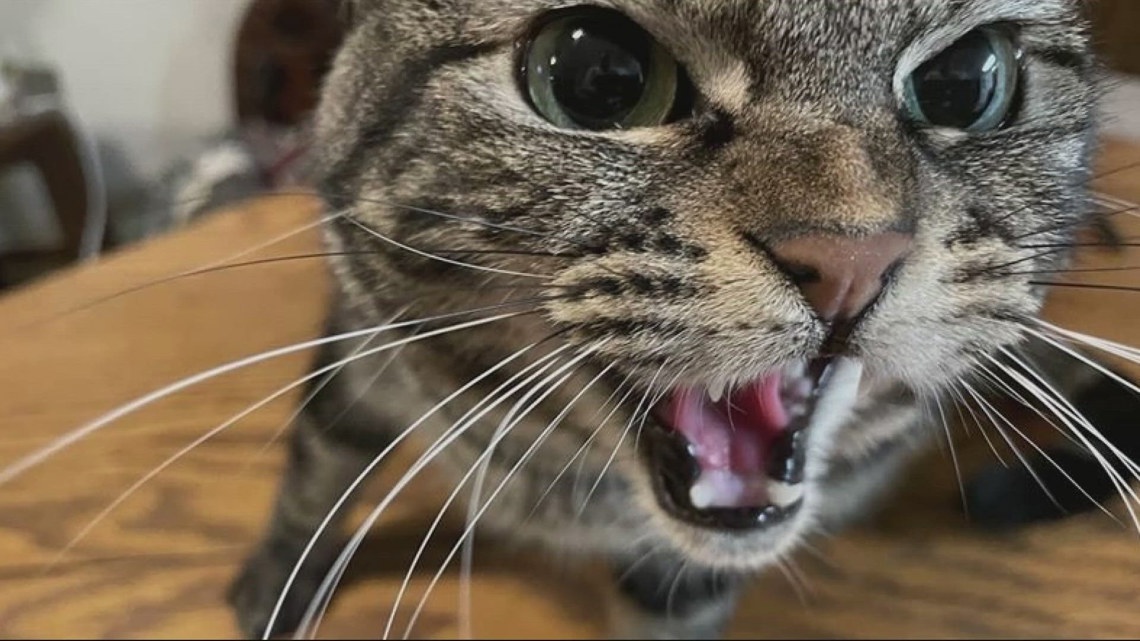Washington State University professor finds cats with social personalities can serve as therapy animals, expanding animal support accessibility.
WASHINGTON, USA — A study co-authored by a Washington State University professor found some cats may have the “purrfect” personality to be therapy animals.
Pendry acknowledges many cats may not have the desire to step into the role.
“A cat might seek someone out, and then decide to move over to someone else, and make that very clear,” she said, “so they still have a lot of autonomy about who they want to be with.”
Pendry said researchers in Belgium assessed hundreds of cats and found successful animal assistance cats must possess certain behavioral traits — much like assistance dogs — to be able to connect with people.
“Cats that were involved with animal assisted intervention tended to be more social, both with humans as well as other cats,” she said. “They were more attention-seeking and more tolerant of being handled.”
According to the National Institutes of Health, positive interactions with animals have shown to reduce stress, pain and anxiety.
One study alone involving college students showed service pets led to a reduction in the students' heart rate, blood pressure and stress hormones.
Pendry said some people aren't choosy about the particular animal.
Dogs, horses, goats, rabbits and even chickens have served as support pets in conjunction with therapy.
Pendry suggests felines could make animal support more accessible to additional people, but she said the cats need to have the necessary personality.
“I think owners pick up on that and say, ‘gosh, my cat is super social, and maybe my cat could be a therapy cat.'”
Pendry said assisted animal services involving cats are already becoming common in Europe.
Researchers say more work is needed before therapy cats become mainstream in the United States. They say it is important to make sure the role is both good for people and cats.









